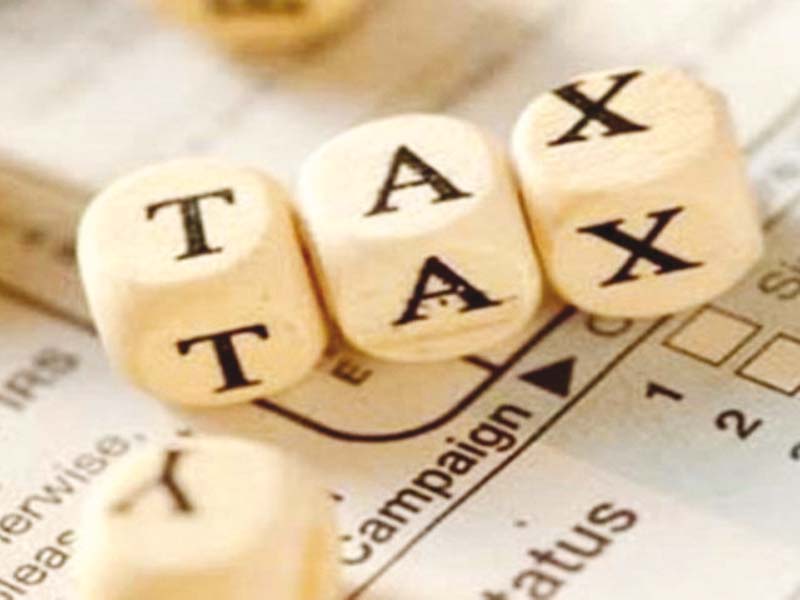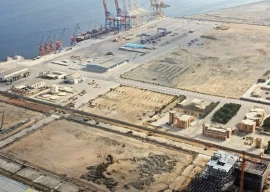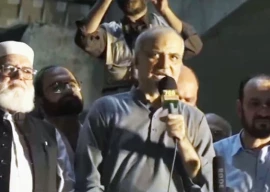
The National Assembly on Monday approved major tax concessions for certain individuals and influential groups of society, weakening the tax base broadening drive and creating more distortions in the tax system.
On recommendations of the Pakistan Tehreek-e-Insaf (PTI) government, the lower house of parliament approved the Finance Act 2020 including some major amendments that the ruling party decided to insert into law after presentation of the budget on June 12.
Before the approval of the budget, the government withdrew the new tax it had proposed for luxury houses and farms, located in the Islamabad Capital Territory.
The new tax concessions that were not part of the Finance Bill 2020 but have now been included are reducing income tax rates for engineering services, shipping business, exempting from tax the income of real estate investment trusts, few educational institutions, lowering tax rates for electric vehicles and Hajj operators.
In a major retreat, the government dropped the amendment to Section 73 that placed a bar on persons from selling goods to unregistered people above the value of Rs100 million in a year.
Currently, this restriction was only limited to the manufacturers and producers, which the Federal Board of Revenue (FBR) had proposed to extend to persons. This would weaken the government’s drive to document the informal economy.
Capital gains tax rates have been lowered for companies not listed at the stock exchange through a provision inserted into Section 37-A that deals with tax rates for securities traded at the stock market.
“Shares of a public company shall be considered as security if such company is a public company at the time of disposal of such shares,” said the amendment.
For a resident company engaged in the hotel business in Pakistan, the government has allowed tax credit claim against losses for a period of eight years against existing six years.
The government included some amendments to the Finance Act that were opposed by the International Monetary Fund (IMF), like concessionary rates for shipping business and Real Estate Investment Trusts (REITs).
The IMF was against person or institution-specific tax exemptions but the National Assembly approved income tax exemption for the Foundation University.
The National Assembly approved 3% income tax on engineering services, warehousing services, services rendered by asset management companies, data services provided under the licence issued by the Pakistan Telecommunication Authority and telecommunication infrastructure (tower) services.
On June 12, the government had proposed 8% advance income tax on engineering services. Main beneficiaries of this concession are a foreign company engaged in oil and gas exploration and people involved in engineering services business.
The National Assembly approved concessional sales tax for shipping business for another seven years to 2030. The IMF had opposed further extension in the concession.
Donations to Alamgir Welfare Trust International were exempted from income tax. The assembly approved unconditional income tax exemption for Sindh Institute of Urology and Transplantation, SIUT Trust and Society for the Welfare of SIUT, Shaukat Khanum Memorial Trust and National Endowment Scholarship for Talent (NEST). It also gave income tax exemption to Foundation University.
The National Assembly approved exemption from minimum turnover tax on Hajj Group Operators for tax year 2021. The minimum income tax has also been waived for a resident company engaged in hotel business in Pakistan in respect of turnover for the period starting on the first day of April 2020 and ending on September 30, 2020.
Exemption from tax on profit and gains on the sale of immovable property to a development REIT scheme with the objective of development and construction of residential buildings has been extended up to June 2023 – an extension of three years.
In the Finance Bill 2020, the government had proposed one-year extension but within two weeks it decided to grant three-year extension.
The National Assembly also approved exemption from withholding and advance income tax on cash withdrawal from banks and banking transactions in a Pak rupee account in a tax year to the extent of foreign remittances credited into such account during that tax year.
The National Assembly approved exemption from withholding tax on commission being charged by the retail branchless banking agent on any amount disbursed by the Ehsaas Emergency Cash Transfer Programme for the period commencing on April 16, 2020 and ending on September 30, 2020.
The National Assembly approved tax concessions for electric vehicles under the Electric Vehicle Policy 2020.
The concessions will be admissible for a period of five years with effect from July 1, 2020 on the import of 10 electric vehicles (CBU) of the same variant to be assembled/ manufactured to the extent of maximum 200 units, to two and three-wheeler segment, duly approved/certified by the Engineering Development Board (EDB).
The electric auto rickshaws, three-wheeler electric loader and electric motorcycle can be imported at 50% of the prevailing tariff rate of customs duty as specified in the First Schedule to the Customs Act, 1969. The electric buses, trucks and prime movers can be imported at 1% duties.
The national assembly approved to exempt 5% sales tax on oil cake and other solid residues.
The government has also lowered the sales tax rates on import of mobile phones in CKD kits for certain categories while it has fixed the sales tax at Rs10 per set on supply of locally manufactured mobile phones in CBU condition in addition to fixed tax at the import stage.
The National Assembly has approved to connect FBR’s database with NADRA, Emigration Office, FIA, provincial and local land record authorities, all electricity suppliers and gas transmission companies.
The Limited Liability Partnership Act, 2017 companies have been allowed to avail PM’s Construction sector tax amnesty scheme.
The national assembly also approved to keep the withholding tax rate for mutual funds at 15% as against the original budget proposal of 25%.
The budget proposal to impose 25% regulatory duty on energy drinks has been withdrawn. The duties on imported cigarettes of tobacco, cigars, cheroots and cigarillos of tobacco have been imposed at rate 65% as against the budget proposal of 100%.
The excise duty on cement has been reduced by 50 paisa to Rs1.5 per kg, which will lower the prices of each bag by Rs50.
The Ministry of Finance did not accept the recommendations of the Senate Standing Committee on Finance and got the amendments approved from the national assembly as per its own wisdom. Now, instead of presenting detailed items for each demand for grant, only “major objects for each demand for grant”, will be presented before the parliament in the Annual Budget Statement.
The finance ministry also did not accept the Senate’s demand for presenting the annual budget before the standing committees and instead it will now present report on the budget.
Published in The Express Tribune, June 30th, 2020.
Like Business on Facebook, follow @TribuneBiz on Twitter to stay informed and join in the conversation.





1719053250-0/BeFunky-collage-(5)1719053250-0-270x192.webp)












COMMENTS
Comments are moderated and generally will be posted if they are on-topic and not abusive.
For more information, please see our Comments FAQ